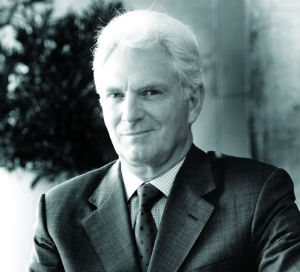
Dr. Nasser Saidi: The Arab Awakening
February 16, 2014
History Lessons: Bushido Europe, False Advertising and the Early Gegard Mousasi
February 16, 2014
Italy’s government crisis affects the entire euro zone and all of Europe.
The resignation of Prime Minister Enrico Letta is not an act of political myth-making – as we’ve seen in the past in Italy. Instead, it represents a very real cut that could severely disrupt Europe’s fight against the economic crisis.
The pro-European Letta had to leave after just nine month in office. Tragically, he failed due to the ambitions of younger co-party member Matteo Renzi. Letta managed to break the resistance of the obtrusive conservative Silvio Berlusconi after months of political skirmishes. Berlusconi has lost his post and power in 2013 because he was finally convicted of a crime and thrown out of the Senate. But Letta didn’t had much time to celebrate. In December, he lost the chairmanship of the Social Democrats to Renzi and now probably the position of the head of government as well.
On the European level, Letta’s quiet and calm manner has made him appreciated by the other heads of states and government. After the Italian parliamentary elections in February 2013 closed without a clear result, he managed to negotiate a “grand coalition” that even Berlusconi’s party played a role in until November 2013. Although he wasn’t able to enact major reforms, there were rays of hope for Italy’s economic development, according to the EU Commission. The costs for financing the exuberant Italian public debt were bearable. Italy’s relative stability during the economic crisis was important – and now it is gone. That is likely to lead to uncertainty on financial markets and among potential buyers of Italian bonds.
Return of the euro crisis?
Threat of Il spread, the risk surcharge for Italian bonds, might return. The risk of an Italian state bankruptcy could come into play. The European Union has to do all it can do to allay concerns about Italy. It would prove very costly for the EU if an extended government crisis plunges Italy back into chaos as the country, which is “too big to fail,” would need a European bailout. Its public debts are so big that a financial rehabilitation would overstrain the ESM bailout fund. Matteo Renzi, who as mayor of Florence has no national government experience, announced tougher reforms. The unconventional Social Democrat has even discussed the modifications to Italian electoral laws with political arch enemy Berlusconi.
But first of all, Renzi will have to organize a majority in both chambers of the parliament for his potential government. That will be difficult as current coalition partner of the Social Democrats, Interior Minister Angelino Alfano, has not guaranteed support for a new coalition led by Renzi. In November, Alfano and some of his followers split from the Berlusconi camp when the latter denounced the “grand coalition” Letta established.
Italian power plays with an open end
Renzi might try to find a deal with Beppe Grillo’s 5-Star movement, which received nearly 30 percent of the votes in last year’s election. Grillo has, so far, rejected any kind of cooperation with other parties. He focuses on protesting against what he sees as a German dominated EU. The aging President Giorgio Napolitano called new elections in the middle of a severe economic crisis ridiculous. Napolitano might appoint a technocrat government for a transition period.
Italian’s politicians will probably be self-absorbed for weeks or even months. That doesn’t help the many unemployed and small businesses fighting for economic survival. The elections for the European Parliament at the end of May will supposedly be used as an outlet for the frustration. The Grillini, or supporters of a euro-skeptical movement, could receive an unimagined influx of support. That would deepen the political crisis and make Italy practically ungovernable. The EU can only hope that situation does not get that bad.
Silvio Berlusconi, the everlasting conservative string-puller, might surprise everyone. He wanted to find legal loopholes in order to run for a seat in the European Parliament. Maybe now he’ll find some way to once more become involved in Italy’s domestic politics. The political chaos is a gift for Cavaliere Berlusconi and a nightmare for Europe.



